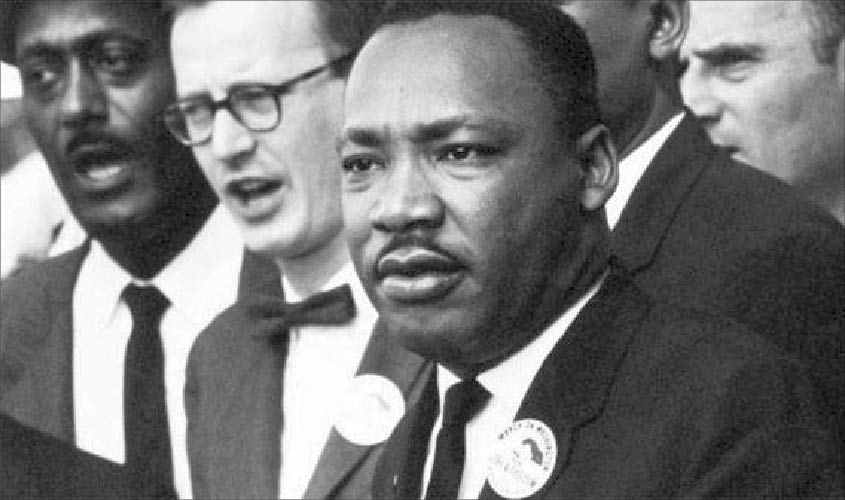Santosh Bakaya’s biography of Martin Luther King Jr. re-establishes the relevance of this global icon in the context of the political and social predicaments we are facing today, writes Sneha Gohri.
The main protagonist of America’s Civil Rights Movement, Martin Luther King Jr. was among the few thinkers and political activists who helped shaped our world. From his active political life in the mid-1950s to his assassination in 1968, King fought with full commitment for racial equality and a just society.
His ideas were deeply influenced by Mahatma Gandhi and his connection with India is explored in a new biography of King, Only in Darkness You Can See the Stars, written by Dr Santosh Bakaya. “As a result of his India visit,” Bakaya writes, “he developed a greater understanding of non-violence and his commitment to achieve freedom for his people through non-violent means became deeper.”
Both King and Gandhi are seen as global figures now, and in our time, when the politics of polarisation is gaining ground the world over, their ideas are beginning to seem more relevant than ever before.
At one point in her book, Bakaya tells us about King’s visit to India in 1959. He was in Kerala, where a principal of a school introduced him to an audience in these words, “Young people, I would like to present to you a fellow untouchable from the United States of America.” King was deeply affected by his interactions with members of the under-caste communities in India. He carried the lessons he learned here back home, and began to think in terms of a global solidarity movement for marginalised people. At a sermon he delivered at the Ebenezer Baptist Church in 1965, he said, “Yes, I am an untouchable, and every Negro in the United States of America is an untouchable.”
King’s connection with India and his engagement with Gandhi’s philosophy are among the narrative threads explored in detail in this book. On his 1959 India tour, King became a devotee of Gandhi’s philosophy of nonviolence. During the darkest days of the Civil Rights Movement, he was guided onwards by the light of Gandhian principles. He lived by Gandhi’s concept of the “truth force” or “love force” as the only form of power that political activists should pursue.

By Santosh Bakaya; Vitasta Publishing Pvt. Ltd.; Pages: 312; Price: Rs 495
King further explored parallels between India and the United States of America. He was well-versed with the history of colonialism, and saw this history reflected in the struggles of the African-American community. As he said, “…the strongest bond of fraternity was the common cause of minority and colonial peoples in America, Africa and Asia struggling to throw off racism and imperialism.”
Luther’s connect to India and Gandhi also affected him on a personal level as a Christian minister. “I came to see for the first time that the Christian doctrine of love operating through the Gandhian method of nonviolence was one of the most potent weapons available to oppressed people in their struggle for freedom,” he is quoted in this book as saying.
Santosh Bakaya has written an accessible and relatable biography. She has kept the chapters short and has used snippets of King’s different speeches throughout the book, with which she draws the reader in. The author also quotes the various statements made about King by world leaders, like John F. Kennedy, making room for multiple viewpoints and giving us a complete portrait.
She cites numerous sources in this book, which would enable readers delve further into Martin Luther King Jr.’s celebrated life. Previously, Bakaya has written a critically acclaimed poetic biography of Gandhi, called Ballad of Bapu. With this well-researched biography of Martin Luther King Jr., she has ventured into a new territory while staying with the old Gandhian theme that has always appealed to her. She wishes to spread the following message through her book,“This hate filled world would once again echo worth his rumbling eloquence and persuasive conviction, beseeching it to put an end to ‘revenge aggression and retaliation,’ making place for the reign of love for never were we more deeply ‘in need of a new way, beyond the darkness that seems so close around us.’ So, it is the crying need of the hour to rededicate ourselves, as King wanted so many years back, to the struggle for a new world, bursting with love, compassion, sincerity, nonviolence, harmony and peace.” Thus, this book is required reading for those who are curious about history and worried about the present.

